If you’re a beginner looking to embark on an exciting backpacking adventure, this guide is for you. This backpacking tips for beginners is what you need.
Backpacking offers a unique opportunity to connect with nature, challenge yourself, and create lasting memories. This article will cover everything you need.
Here are 10 beginner backpacking tips to help you have a safe and enjoyable outdoor adventure:
- Plan Your Route: Research the trail you’ll be hiking, check maps, and understand the terrain and difficulty level. Choose a route that matches your skill and fitness level.
- Pack Light: Keep your backpack as light as possible. Only pack the essentials, and opt for lightweight gear. A general rule is to carry no more than 20-25% of your body weight.
- Quality Gear: Invest in good-quality gear, especially your backpack, hiking boots, and sleeping bag. Proper footwear is crucial to prevent blisters and discomfort.
- Layer Clothing: Dress in layers to adapt to changing weather conditions. A moisture-wicking base layer, insulating mid-layer, and waterproof outer layer are essential.
- Water and Food: Carry enough water and pack easy-to-prepare, lightweight, and high-energy foods. Don’t forget water purification methods such as a filter or iodine tablets.
- Leave No Trace: Follow the principles of Leave No Trace to minimize your impact on the environment. Pack out all trash, and avoid disturbing wildlife and vegetation.
- Navigation: Bring a map, compass, or GPS device and know how to use them. Mark your trail and set waypoints to avoid getting lost.
- First Aid Kit: Carry a basic first aid kit with essentials like bandages, antiseptic wipes, pain relievers, and any necessary personal medications.
- Know Your Limits: Listen to your body. Take breaks, stay hydrated, and rest when needed. Pushing too hard can lead to exhaustion and injury.
- Inform Others: Let someone know your hiking plans, including your route and expected return time. This is important for safety in case of emergencies.
Contents
Before hitting the trails, it’s important to learn the basics of backpacking and understand both its benefits and challenges.
In this comprehensive guide, we’ll provide you with essential tips and advice to help you navigate your first backpacking trip successfully.
From choosing the right hiking gear and packing your bags efficiently to understanding trail conditions and setting up tents, we’ve got you covered.
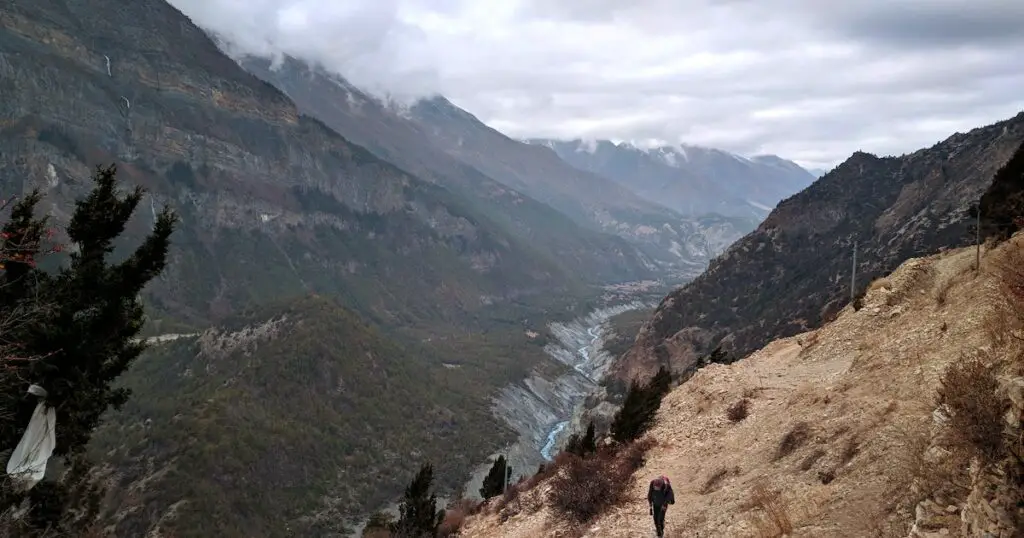
Backpacking Tips for Beginners
When backpacking, it’s important to have gear that won’t weigh you down.
Look for lightweight options like a backpack made of durable materials or a sleeping bag that is both warm and lightweight.
This will make your journey more comfortable and enjoyable.
Pack Essential Items Efficiently
Efficient packing is key to a successful backpacking trip.
Make sure to pack essential items such as food, water, clothing, and shelter in a way that maximizes space and minimizes weight.
Roll up your clothes tightly to save space in your backpack, and consider using compression sacks for bulky items like sleeping bags.
Research and Plan Your Route
Before setting off on your adventure, take the time to research and plan your route. Look for popular backpacking trails or scenic areas that suit your interests.
By planning ahead, you can ensure a smooth trip without any unexpected surprises along the way.
Familiarize Yourself with Basic Outdoor Skills
To have a safe and enjoyable backpacking experience, it’s important to familiarize yourself with basic outdoor skills.
Learn how to navigate using a map and compass or GPS device so you don’t get lost on the trail. Having some knowledge of first aid can be incredibly valuable in case of any injuries or emergencies.
Remember these insider tips:
- Invest in a good quality sleeping pad for added comfort.
- Don’t forget to pack extra socks – they can come in handy!
- Use dry bags or waterproof stuff sacks to protect your gear from rain.
- Bring along some lightweight snacks for quick energy boosts on the trail.
By following these backpacking tips for beginners, you’ll be well-prepared for an exciting adventure into the great outdoors!
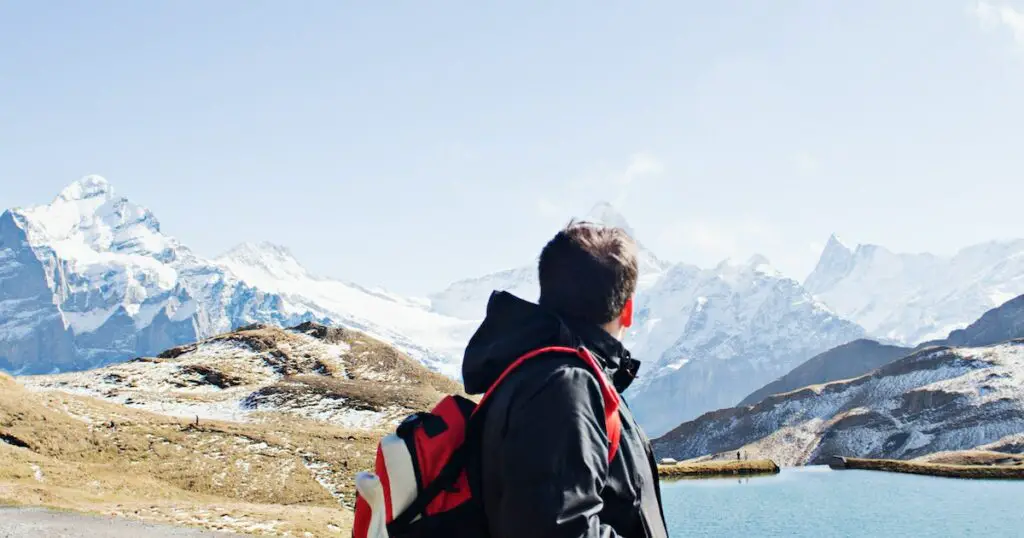
Essential Steps to Begin Backpacking Journey
Start your backpacking journey by setting realistic goals based on your fitness level and experience. Don’t bite off more than you can chew!
If you’re a beginner, it’s best to start with shorter and easier trails before tackling more challenging ones. Remember, Rome wasn’t built in a day!
Invest in Proper Footwear
Investing in proper footwear is crucial for a comfortable and supported hiking experience. Look for hiking boots or shoes that provide good traction.
Ankle support, and cushioning. Your feet will thank you later when you’re trekking through uneven terrain or crossing streams.
Build Endurance
Before embarking on longer hikes, it’s important to build endurance through regular exercise. Start with shorter walks or hikes and gradually increase the distance over time.
This will help condition your body and prepare it for the physical demands of backpacking.
Gradually Increase Pack Weight
As you train for longer trips, gradually increase the weight of your pack to simulate the load you’ll be carrying during your backpacking adventures.
Start with a lighter pack and add weight incrementally each time until you reach your desired load.
This will help strengthen your muscles and get them accustomed to the extra weight. Remember, preparation is key.
Avoid 15 Common Rookie Mistakes
One of the biggest mistakes beginners make is overpacking. Remember, you’ll be carrying everything on your back, so it’s crucial to lighten your load.
Bring only what you truly need and leave behind the unnecessary items.
Opt for Quick-Drying Materials
Cotton may be comfortable, but it retains moisture and can leave you feeling damp and uncomfortable during your trip.
Instead, choose clothing made from quick-drying materials like polyester or nylon. These fabrics will keep you dry and comfortable throughout your backpacking adventure.
Research Local Regulations
Before embarking on your journey, take some time to research local regulations regarding permits or camping restrictions in the area you plan to visit.
This will help prevent any unforeseen issues and ensure that you are following all the necessary rules while enjoying nature.
Inform Someone About Your Itinerary
It’s essential to let someone know about your itinerary before heading out into the wilderness.
Share details such as where you’re going, how long you plan to stay, and when they should expect you back.
This way, if anything goes wrong or if there’s an emergency, someone will know where to find you.
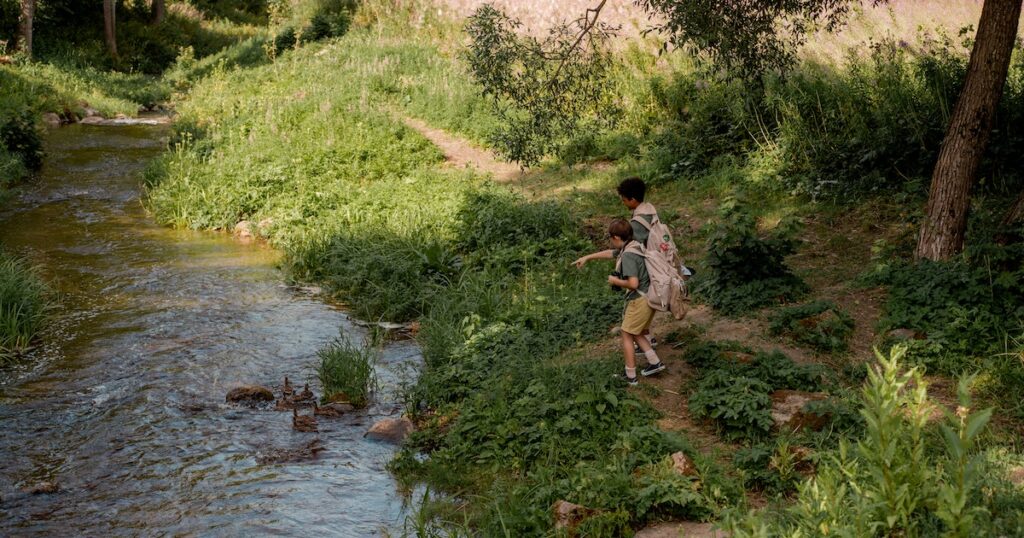
Practical Tips for a Successful Backpacking Trip
To ensure a successful backpacking trip, it’s crucial to stay hydrated. Make sure to drink plenty of water throughout your hike.
This will help you maintain energy levels and prevent dehydration, especially in hot or strenuous conditions.
Pace Yourself Uphill
When facing uphill sections during your backpacking trip, remember to pace yourself. Take it slow and steady to conserve energy and avoid exhaustion.
It’s not a race! By maintaining a comfortable pace, you’ll be able to enjoy the journey without feeling completely worn out.
Practice Good Hygiene
Maintaining good hygiene is essential while backpacking. Proper waste disposal techniques are crucial in the backcountry.
Pack proof bags for storing trash and dispose of them properly when you reach designated areas. This helps preserve the environment and ensures the safety of wildlife.
Pack Nutritious Meals
Meal planning plays a significant role in backpacking trips. Pack nutritious meals that are easy to prepare on the trail.
Consider lightweight options like dehydrated meals or protein bars that provide essential nutrients without weighing down your pack.
Don’t forget to include snacks for quick energy boosts along the way! Remember, every ounce counts when carrying everything on your back!
Organize Your Gear
Efficiently organizing your gear can make a world of difference during your backpacking adventure.
Utilize pockets, compartments, and gear loops on your backpack to keep items easily accessible when needed.
Invest in a bear canister if required to store food safely and prevent attracting unwanted visitors. By following these practical tips for a successful backpacking trip.
You’ll be well-prepared for an enjoyable outdoor experience filled with beautiful scenery and unforgettable memories.
Navigating with Maps, GPS, or Both
To ensure a successful backpacking adventure in remote areas, it’s crucial to have the skills to navigate effectively.
Here are some tips on how to navigate using maps, GPS devices, or both.
Learn How to Read Topographic Maps
Reading topographic maps is an essential skill for navigating in remote areas.
These maps provide detailed information about the terrain, including elevation changes and natural features.
By understanding contour lines and symbols on the map, you can plan your route and identify potential camping spots or water sources along the way.
Familiarize Yourself with GPS Devices or Smartphone Apps
While traditional maps are reliable, having a GPS device or smartphone app as a backup can be incredibly helpful.
These tools use satellite technology to pinpoint your location accurately. Make sure to familiarize yourself with how they work before your trip.
Some popular apps include Gaia GPS and AllTrails.
Use a Compass for Orientation
A compass is another valuable tool for navigation during backpacking trips. It helps you determine which direction you’re facing and find your bearings on the trail.
By combining compass skills with map reading and GPS technology, you’ll have multiple methods of navigation at your disposal.
Remember:
- Always carry extra batteries for your GPS device.
- Keep paper copies of your maps as a backup in case electronic devices fail.
- Practice using these tools before embarking on your backpacking adventure.
By mastering the art of navigation through map reading, utilizing GPS devices or smartphone apps, and employing compass skills.
You’ll be well-prepared to explore remote areas confidently.
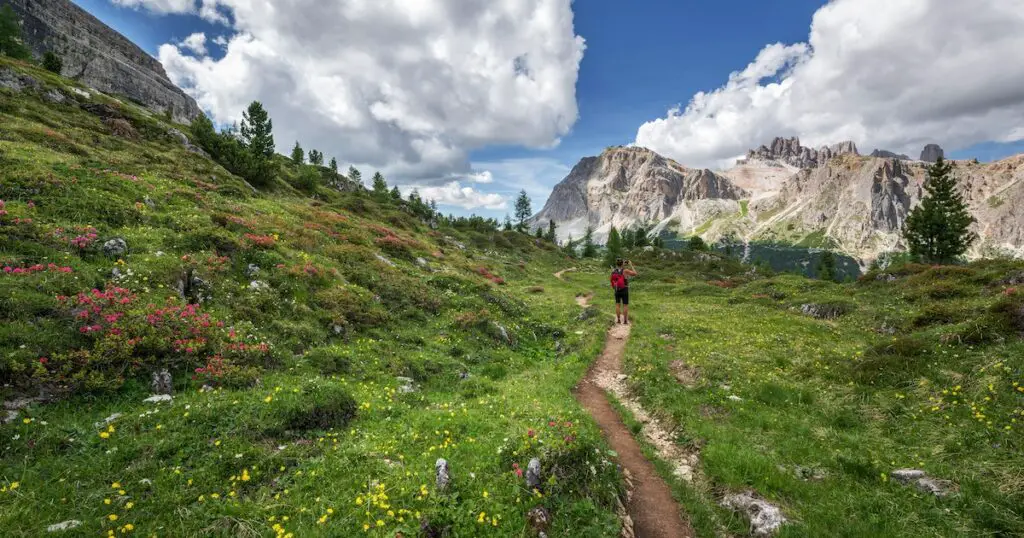
Backcountry Essentials: Packing and Expectations
When backpacking in the backcountry, it’s crucial to pack essential safety items. These include a first aid kit, emergency shelter, and fire-starting tools.
A first aid kit will come in handy for treating any minor injuries or ailments that may arise during your trip.
An emergency shelter, such as a lightweight tent or tarp, provides protection from unexpected weather changes or emergencies.
Fire-starting tools like matches or a lighter are important for warmth and cooking food.
Prepare for Changing Weather Conditions
Backcountry camping often means dealing with unpredictable weather conditions. To stay prepared, pack appropriate clothing layers.
Base layers made of moisture-wicking materials help regulate body temperature and keep you dry.
Layer on insulating clothing like fleece jackets or down vests to stay warm in colder temperatures.
Don’t forget to bring rain gear such as waterproof jackets and pants to protect yourself from rain showers.
Limited Access to Amenities
When venturing into the backcountry, be prepared for limited access to amenities we often take for granted in everyday life.
There might not be electricity or running water available at your campsite.
Therefore, it’s important to plan accordingly by bringing portable chargers for electronic devices and packing enough water or water purification methods.
Pack Lightweight and Compact Gear
To optimize space in your backpack, it’s essential to pack lightweight and compact camping gear.
Look for packs specifically designed for backcountry camping that distribute weight evenly across your body.
Consider investing in used gear if you’re on a budget but ensure it’s still functional and safe to use.
Remember that every ounce counts when carrying a heavy pack over long distances, so choose items wisely based on their weight-to-function ratio.

Practice Leave No Trace Principles
To ensure that your backpacking adventure has minimal impact on the environment, it’s important to follow the principles of Leave No Trace.
These guidelines will help you preserve the natural beauty and integrity of the wilderness areas you explore.
Minimize Your Impact
- Properly dispose of waste by burying human waste at least 200 feet away from water sources and trails.
- Pack out all trash, including food scraps and packaging. Don’t leave anything behind.
- Use biodegradable soap for washing dishes or yourself, and do so at least 200 feet away from water sources.
Respect Wildlife
- Observe wildlife from a distance and avoid approaching or feeding them. Remember, they’re wild animals!
- Keep food stored securely in bear canisters or hang it high up in a tree to prevent attracting wildlife.
- Avoid making loud noises or sudden movements that could disturb or scare animals.
Stick to Established Trails
- Stay on established trails to minimize damage to fragile ecosystems. Going off-trail can harm vegetation and disturb wildlife habitats.
- Follow any posted signs or guidelines specific to the area you’re exploring.
- If encountering obstacles like fallen trees or washouts, don’t create new paths around them. Instead, report them to park authorities if possible.
By practicing these Leave No Trace principles, you’ll contribute to preserving the natural beauty of our wilderness areas for future generations of backpackers to enjoy.
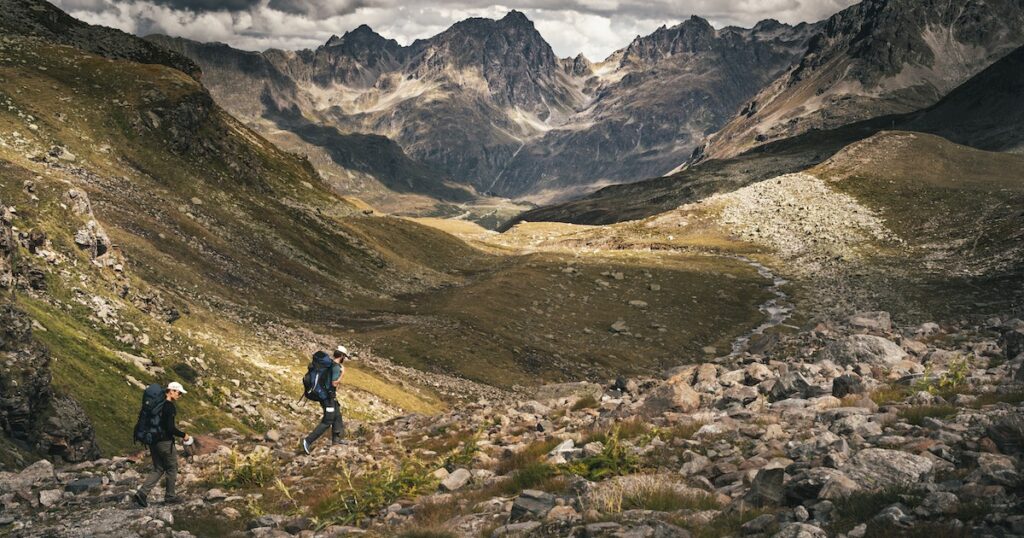
Resources for Beginner Backpackers
If you’re new to backpacking and looking for guidance, there are several resources available to help you get started.
These resources can provide valuable advice, teach you essential skills, and help you select the right gear for your outdoor adventures.
Join Online Backpacking Communities or Forums
Joining online backpacking communities or forums is a great way to connect with experienced hikers and gain valuable insights.
You can ask questions, seek advice, and learn from their experiences.
These communities often have dedicated sections for beginners where you can find tips specific to your needs.
Read Books or Watch Instructional Videos
Books and instructional videos are excellent resources for learning backpacking techniques and tips.
They cover a wide range of topics such as navigation, campsite selection, cooking on a backpacking stove, and more.
Look for beginner-friendly materials that provide step-by-step instructions and practical advice.
Attend Local Workshops or Classes
Many outdoor organizations offer workshops or classes specifically designed for beginner backpackers.
These sessions provide hands-on learning opportunities where you can acquire new skills under the guidance of experts.
Topics may include map reading, first aid, knot tying, and wilderness survival techniques.
Visit Gear Stores with Knowledgeable Staff
Visiting specialized stores with knowledgeable staff can be incredibly helpful.
They can guide you in choosing appropriate equipment such as hiking boots or running shoes based on your needs and preferences.
They may also recommend essential items like backpacks, sleeping bags, tents, and camping stoves.
By utilizing these resources for beginner backpackers – online communities/forums, books/videos, workshops/classes, gear stores.
You’ll gain valuable knowledge to embark on your outdoor adventures confidently.
Remember to always research popular trails in advance and check with ranger stations for any necessary permits or trail conditions before setting off on your hikes.
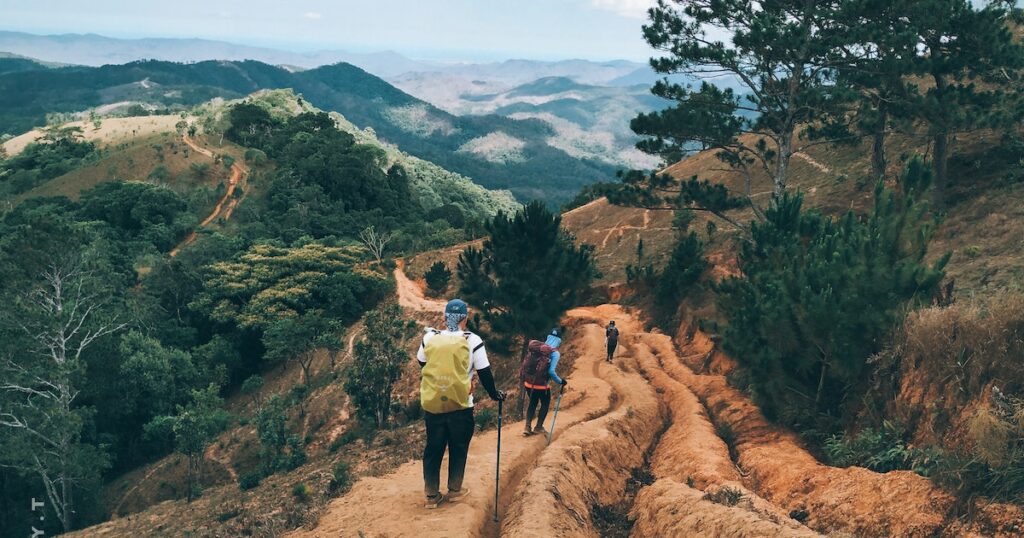
Conclusion
In conclusion, this blog post has provided valuable backpacking tips for beginners to ensure a successful and enjoyable trip.
From essential steps to common rookie mistakes to practical tips for packing and navigation, this guide covers all the necessary aspects of backpacking.
It also emphasizes the importance of practicing Leave No Trace principles and provides additional resources for beginner backpackers.
To embark on your own backpacking journey, remember to plan ahead, pack smartly, and be prepared for unexpected challenges.
Take the time to research your destination, understand the terrain and weather conditions, and invest in high-quality gear.
By following these tips and guidelines, you can have a memorable adventure while minimizing any potential risks.
FAQs
1. What are some essential items to pack for a backpacking trip?
It’s crucial to prioritize lightweight and versatile gear. Some essential items include a reliable tent, sleeping bag, cooking equipment, water filter or purifier, first aid kit, appropriate clothing layers, sturdy footwear, navigation tools (maps or GPS).
2. How should I choose the right backpack size?
Selecting the correct backpack size is vital for comfort during long hikes. Consider factors such as torso length (measured from your C7 vertebrae down to your hip bone), hip belt size (which should sit comfortably on your hips without digging in).
3. What safety precautions should I take while backpacking?
Safety should be a top priority while backpacking. Some precautions to take include informing someone about your trip plans and expected return date, checking weather conditions before heading out, carrying navigation tools and knowing how to use them.
4. How can I minimize my impact on the environment while backpacking?
To minimize your impact on the environment while backpacking, follow Leave No Trace principles. These include packing out all trash (including biodegradable items like fruit peels), camping in designated areas or on durable surfaces like rock or gravel.
5. What are some beginner-friendly backpacking destinations?
There are numerous beginner-friendly backpacking destinations around the world.

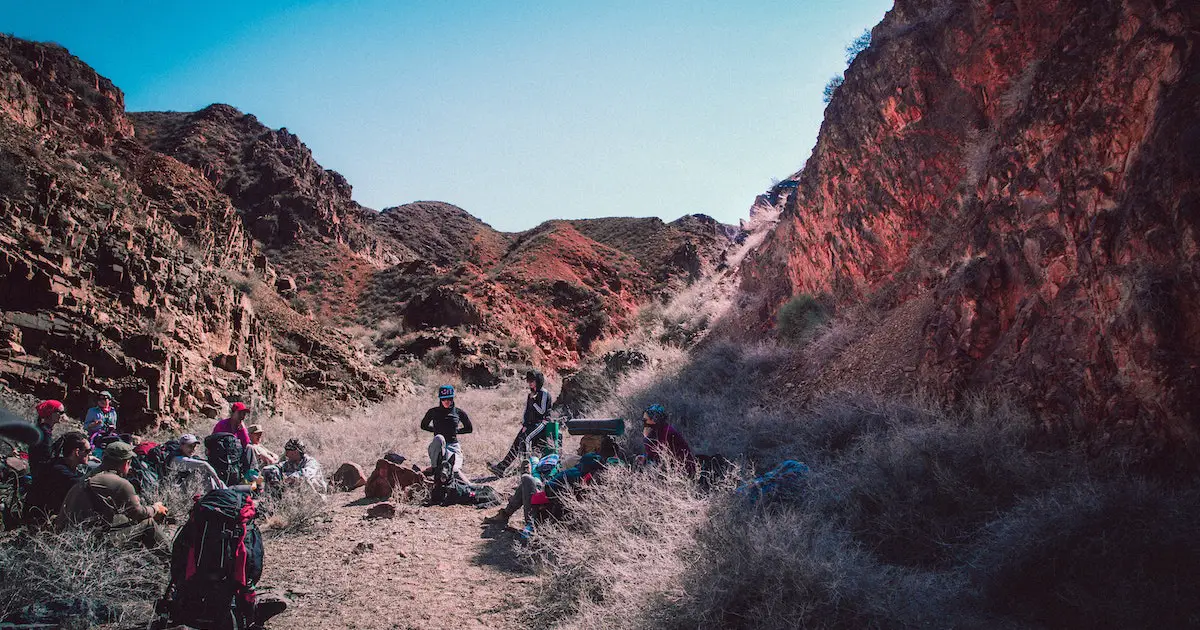

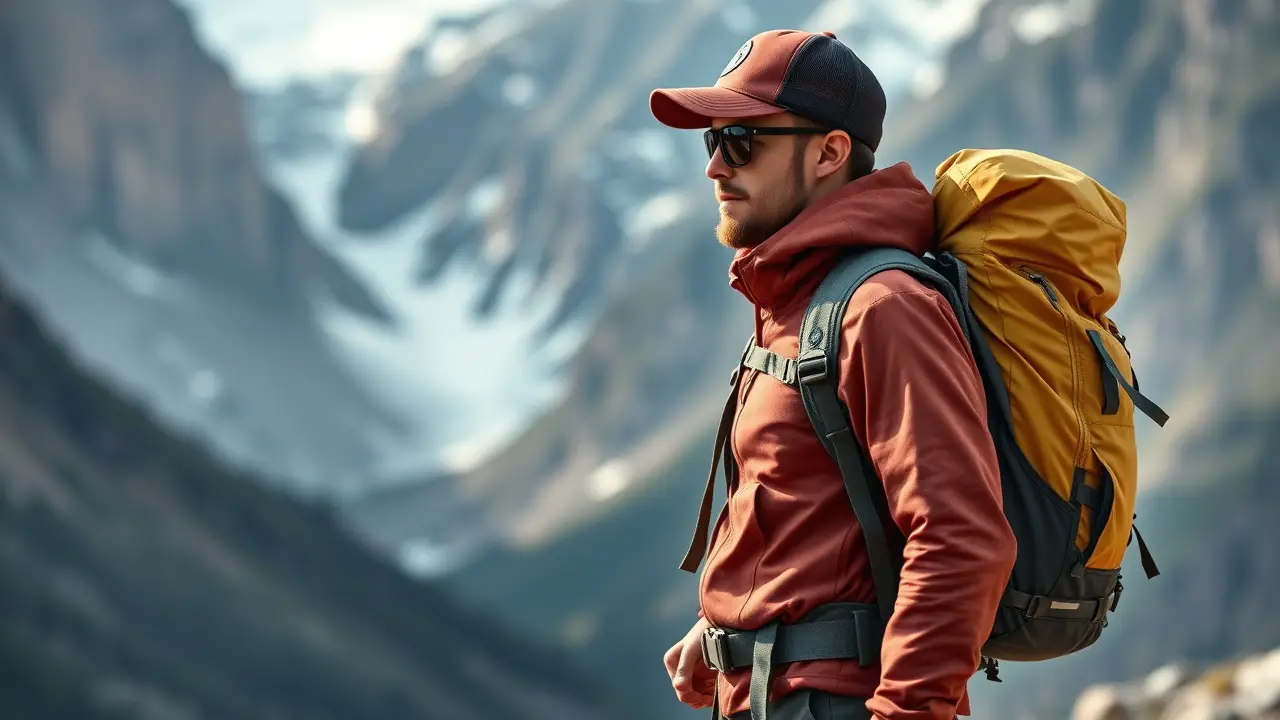
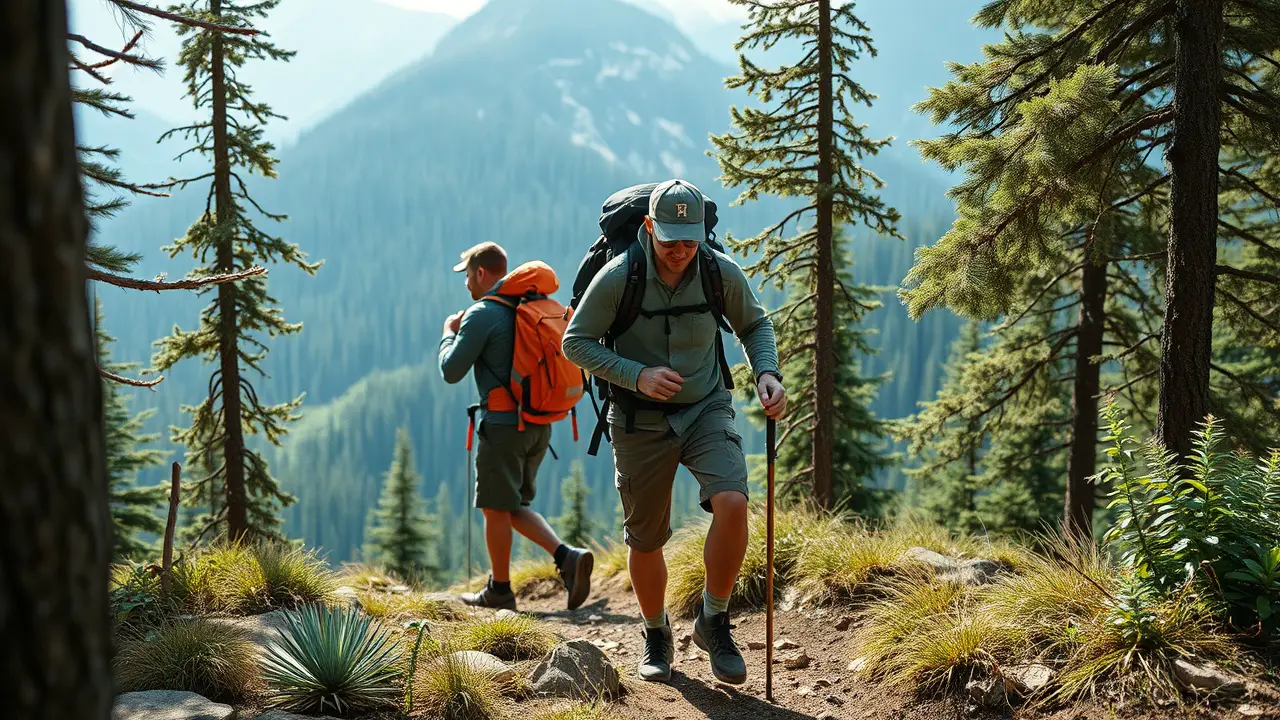
Leave a Reply